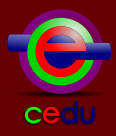POSSIBILITIES FOR PORTUGUESE LANGUAGE TEACHING ACCORDING TO BNCC FROM CRITICAL STUDY STUDIES
Keywords:
Critical Discourse Analisys, Portuguese Language, BNCC, Comic strips, Social networkingsAbstract
The teaching of Portuguese language needs, in view of the current conceptions, to perceive language as a social practice that does not separate itself, therefore, from the subjects and from all aspects that surround them, as well as from the world in which they interact. From the premise, it is also possible to understand the discourse as part of these social practices that is often manifested in the texts as a way of promoting domination, that is, associated with ideological perceptions according to the Critical Discourse Analysis (ADC). Therefore, we aim in the present research to defend the thesis that comic strips published on social networks can help in the deconstruction of discourses that support relations of domination present in social practices. In line with this purpose, the methodological path outlined is based primarily on the analysis of lexical and imagery elements present in two comic strips collected from social media pages. Then, a practice applied to the teaching of the Portuguese language will be proposed, in line with the guidelines of the Base Nacional Comum Curricular (BNCC, 2018), brazilian educational document, which favors the critical perception of the student, in the sense of identifying and deconstructing in the texts the asymmetric relations of power through the contribution of critical discourse studies. For this reason, the theoretical bases of Critical Discourse Analysis will be used through the contributions of Chouliaraki and Fairclough (1999), Fairclough (1989, 2001, 2003), Ramalho and Resende (2006) and Thompson (2011) that support the notion of ideology.
Downloads
References
BRASIL. Base Nacional Comum Curricular. Brasília, DF: Ministério da Educação, 2018
CHOULIARAK, L. e N. FAIRCLOUGH. Discourse in Late Modernity: Rethinking Critical Discourse Analysis. Edimburgo: Edinburgh University Press, 1999
FAIRCLOUGH, Norman. Language and Power. Londres e Nova York: Longman, 1989
______. Discurso e mudança social. Izabel Magalhães, coordenadora da tradução, revisão técnica e prefácio. Brasília: Editora Universidade de Brasília, 2001.
______. Analysing discourse: textual analysis for social research. London/New York: Routledge, 2003.
RESENDE, V. M.; RAMALHO, V. Análise de discurso crítica. São Paulo: Contexto, 2006.
ROJO, R. H. R. Pedagogia dos multiletramentos: diversidade cultural e de linguagens na escola. In: ROJO, R. H. R; MOURA, E. (Orgs.) Multiletramentos na escola. São Paulo: Parábola Editorial, 2012, p. 11-31.
THOMPSON, J. B. Ideologia e cultura moderna: teoria social crítica na era dos meios de comunicação de massa. 9. ed. Rio de Janeiro, Vozes, 2011.
Published
How to Cite
Issue
Section
License
Copyright
The submission of originals to Cenas Educacionais (CEDU) implies the transfer, by the authors, of the publication rights. The copyright for the manuscripts published in this journal is the author (s), with CEDU rights over the first publication. Authors (s) may only use the same results in other publications by explicitly indicating CEDU as the means of the original publication.
Creative Commons License
Except where otherwise specified, the terms of a Creative Commons Attribution-ShareAlike 4.0 International License license apply to the material published in this journal, which allows unrestricted use, distribution and reproduction in any medium provided the original publication is correctly cited.



 This work is licensed with a License
This work is licensed with a License 